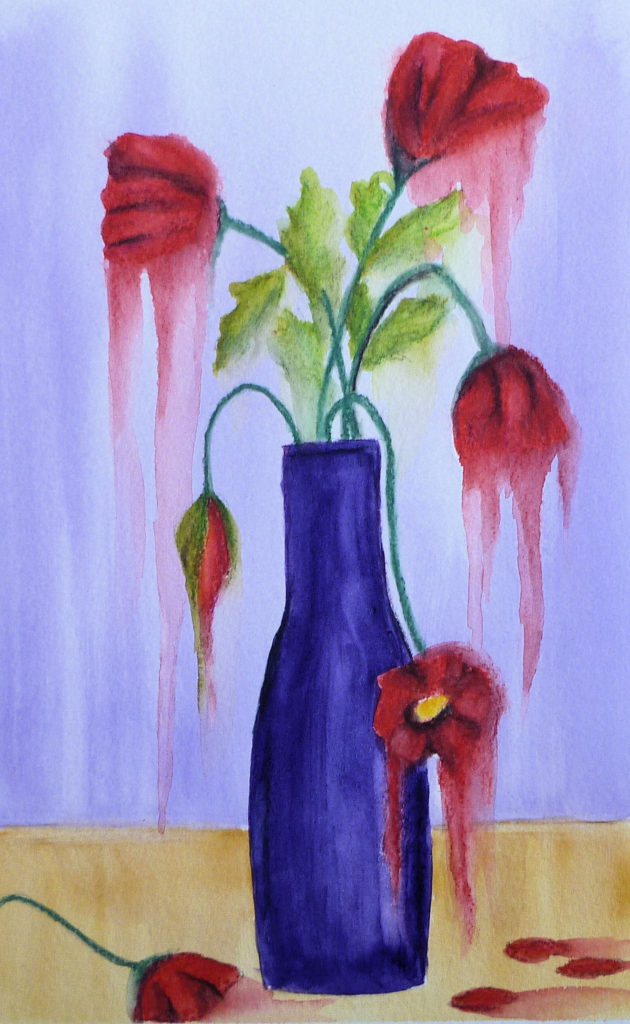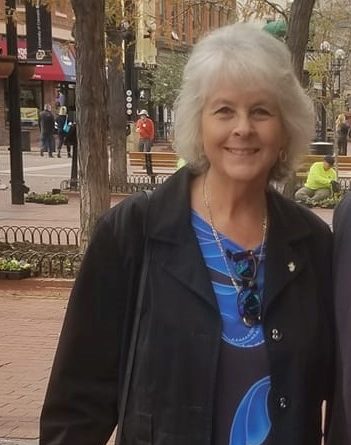Life After Loss by Susan Bilton Bauer
Most of us have heard about the list of the most stressful events in a person’s life, and most of us know what’s right up there at Number 1: the death of a spouse (or a child). If we’re married and/or have children, we probably tuck that bit of information away—far away—because, really, who wants to even try to imagine such a thing? And that is probably the right thing to do, because that little bit of knowledge is no help when it happens to you. And it certainly doesn’t offer any hope or advice for how to get through this most devastating life event.
I’d been a pastor’s wife for many years, but I’d never really known what to say to parishioners who’d recently lost their wife or husband, aside from the usual things you’d say to someone in grief. “So sorry…If there’s anything I can do…May God bless you…” I tended to leave the rough stuff to my husband, who was so good at it. I wonder if I was afraid of opening that conversation with them. But I’d like to share my story with you. And although we don’t know each other, I’d like to talk to you as I would talk with a close friend. So make yourself a cup of tea, and pull up a chair.
First, a little background. My husband, Lou, was a Lutheran pastor. He had served congregations in four states, received specialized, intensive training for several years in caring for deeply troubled people, and together we’d been missionary teachers of seminary students in Namibia and Ghana. Lou died in September 2016, one day after his 49th ordination anniversary. We had been married for 48 years.
In the years prior to his death, Lou had experienced various medical ailments, including two small strokes, but none of these were life-threatening. One morning, while walking our dog, Lou fell. The fall itself did not kill him, but his six weeks in intensive care resulted in a cascade of events that did. The various doctors who attended him in the hospital had kept assuring me that he would fully recover. Until he couldn’t…and didn’t. So, in that sense, his death was unexpected. I have come to believe, however, that whether a death is expected or not is not significant in the effect it has upon a person’s family, especially the spouse.
The dark cave of fresh grief in which I found myself was terrifying. The pain was physical, in my chest and my stomach. Tears wouldn’t stop. When I was with people, I couldn’t wait to be alone, but being alone was unbearable. And yet, I had obligations. I retrieved my dog from the kennel, where she’d been for six weeks, and had to walk her every day and care for her. I needed to pay bills, and handle all the paperwork related to Lou’s death. Several caring friends invited me for lunch or coffee. I needed to talk about Lou, and they let me do that and didn’t mind a bit when I’d start crying. The hospice facility where Lou had been (for only 3 days) made available literature and counselors and special events for newly bereaved family members, and I availed myself of all of these.
I read voraciously during that first year. The first book I picked up was C. S. Lewis’s A Grief Observed. “Yes!” I responded to almost every word. I read many books about bereavement, because I needed to know how others found their way out of this dank cave. But as time passed, I found myself focusing with some urgency on the one question that no book or pastor could satisfactorily answer for me: But where IS he? One Sunday, I found myself seated next to our bishop at a church luncheon, and when I posed that question to her, she directed me to a book that, quite by chance, I discovered later that afternoon at home among Lou’s theology books, N. T. Wright’s Surprised by Hope. This book brought me not only comfort, but a glimmer of hope.
I have always been a woman of faith, but I confess I’ve not always been as faithful as I probably should have been in practicing that faith. Now, with my husband, dearest friend, and resident pastor gone, at the bleakest point of my life, I had nowhere else to turn. Lord, to whom shall (I) go? You have the words of eternal life. (John 6:68)
I can’t say that turning my grief and my life wholly over to God dissolved my sorrow. The passage of time would be needed for that. But very soon I noticed some changes. My fearfulness was dissolving, and I was beginning to notice that I had both the courage and the confidence to reach for what I needed. Opportunities for deeper intimacy with God opened to me. I attended several short prayer retreats at my church and elsewhere. I discovered literature and online resources that began to deepen my intimacy with God. I set aside time every morning for prayer and devotional reading, lighting a candle, playing an album of Gregorian chant, and draping a soft prayer shawl over my shoulders. This small ritual has become the most special part of my day.
When a year had passed, I underwent training to become a hospice volunteer, something I had never thought I’d be capable of doing. Now, in the year and a half since I began this ministry, I feel so privileged to have accompanied six people, in their homes, in this last stage of their lives.
When Lou died, I searched for a simple casket, according to his wishes. The one I found was made by Trappist monks at New Melleray Abbey in Iowa. My son remarked that it looked so much like some of the beautiful walnut furniture his father had built. I became interested in the Trappists, and wondered if I might visit a Trappist monastery. I wasn’t sure I was ready to travel from North Carolina to Iowa, but then I learned about Mepkin Abbey, a Trappist monastery in South Carolina. I signed up for a guided retreat. My week at this beautiful, peaceful monastery on the Cooper River, just north of Charleston, was enriching and healing. A year later, I returned for an individual retreat, and I hope to be able to do this more frequently. During my second Mepkin retreat, I received a session of spiritual direction from one of the monks. He told me that if I am able to loosen my grip on the physical absence of Lou, I might find he is accessible to me on a spiritual level that is even deeper than the physical one. I’m not quite there yet, but I believe I am on the road.
Lou left behind a big stack of sermons. It took me over a year before I could bring myself to read them. I put them in a box, and placed the box next to “Lou’s chair” in the living room, where I sit for my morning devotions. For the next few months, I would sit in that chair each afternoon and read a few sermons. After a while, I noticed that many of them focused upon the theme of comfort, so I set those aside. After he retired, Lou had written two volumes of meditations, based upon his sermons, as well as a children’s Christmas book. It felt to me as if there were another book here. I had also recently become aware of the power of blessings in my reading of books by John O’Donohue and Jan Richardson. So, for the next few months, I gently edited the sermons and wrote short blessings to accompany each one. The result is the book, Comfort for Hard Times: Meditations on Solace, Hope, and Healing.
As the months have passed, I have discovered the difference between aloneness and solitude. The former represents loneliness, and I’m surprised how much that has decreased. Solitude and silence nourish me. They offer me precious time for painting and reading. I choose carefully my social engagements. I am blessed with two caring children and several trusted friends. The healing continues.

My husband wrote me love letters every Valentine’s Day for over 40 years. A year before his death, Lou wrote me a letter to celebrate our anniversary. Toward the end of the letter, he wrote, in words alluding to the recessional hymn at our wedding, “May you continue…from now until eternity in God’s love divine, all loves excelling.” My life today is good, because now I know with deep certainty that love never dies.
_ _ _ _ _
Susan Bauer lives in a small town in central North Carolina. She has been the director of a clinical research ethics committee at the Medical Center of UNC-Chapel Hill, a lecturer in English at seminaries in Namibia and Ghana, and a teacher of memoir writing at Duke University’s program for lifelong learning. Her writing has appeared in magazines, anthologies, and literary journals. Her memoir, Choosing Africa: A Midlife Journey from Mission to Meaning was published in 2009. In her retirement, Susan enjoys watercolor painting and singing in two choirs.

